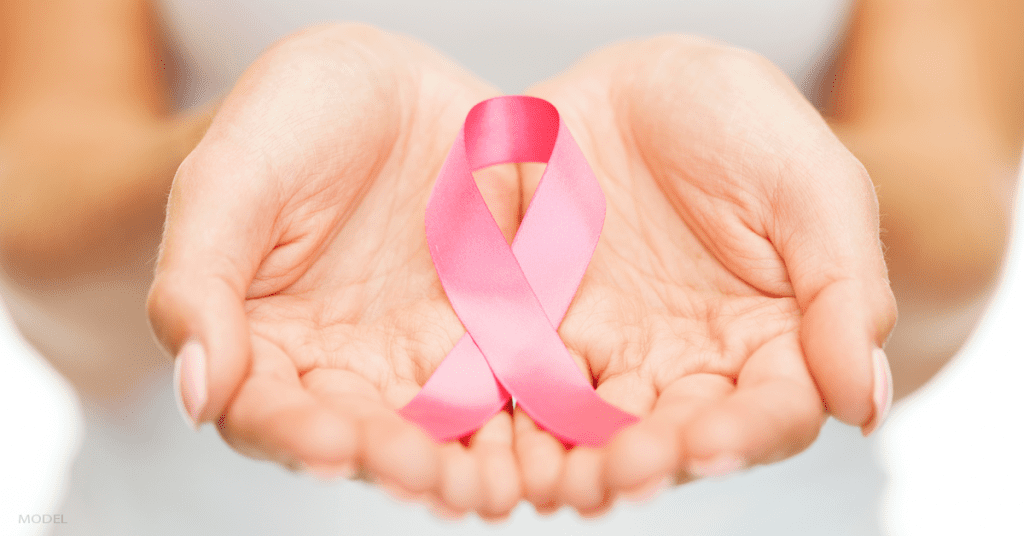Receiving a breast cancer diagnosis can be an overwhelming experience. It’s normal to have many questions and emotions during this challenging time. At the UVA Breast Reconstruction Center in Charlottesville, VA, we want our patients always to feel supported—both physically and emotionally. Armed with the information and care you need, you can comfortably navigate the next steps of your journey.
Breast cancer treatment can involve many things, such as cancer surgery, chemotherapy, and radiation. Sometimes, it also includes a mastectomy, which is a total or partial removal of the breast. Breast reconstruction is often an option for women who have had or intend to have a mastectomy. Not all women choose to undergo restoration. But for those who do, our talented team of surgeons is here to serve you.
What is breast reconstruction surgery?
Breast reconstruction is a surgery used to reshape or reform the breasts after a mastectomy. The procedure typically takes place during or shortly after a mastectomy, but it can also be performed months or years down the line. During breast reconstruction, the surgeon recreates a breast shape using either implants or a flap of tissue from another area of the body. We use several additional techniques to help reconstruct the nipple.
How is breast reconstruction surgery performed?
There are many different breast reconstruction methods. At our practice, we are experienced in all forms of reconstruction, including:
- Implant-based reconstruction: This procedure uses saline or silicone breast implants (similar to those used in breast augmentation). In many cases, we place a tissue expander under the skin first to gradually stretch the skin and make room for an implant. Later, we place an implant underneath the remaining chest tissue. For some women who are candidates, though, we can offer direct breast implant placement without requiring tissue expansion.
- Autologous tissue reconstruction: Commonly known as flap surgery or flap reconstruction, autologous tissue reconstruction creates a new breast out of the patient’s own skin and tissue. In one type of autologous tissue reconstruction, commonly called a free flap procedure, the blood supply to the newly formed breast is created using an intricate microsurgical technique. This type of reconstruction works best for those who have enough preexisting tissue in other areas of the body and is suitable for more complicated cases. No implants are required.
- Our practice offers DIEP flap surgery, which uses skin, fat, and blood vessels from the lower abdominal area to create a more natural-looking breast. We are currently the only clinic in Central Virginia to provide this option to patients, and you can read more about it in an article I wrote for The Daily Progress.
- We also offer a flap “re-sensation” technique that connects sensory nerves to the flap, improving the likelihood that the breast will regain sensation.
- During free flap surgeries, our surgeons inject the abdominal wall with a long-acting numbing medicine that relieves pain for 48 to 72 hours. The long-lasting medication helps keep patients very comfortable so that they’re able to go home after only 2 to 3 days.
What are the benefits of breast reconstruction surgery?
Choosing breast reconstruction is a very personal decision. However, the procedure offers many benefits. Surgery can help you look and feel more “balanced” in your clothing when wearing a swimsuit or form-fitting outfit. It also removes the need for you to use an external breast form inside your bra. Ultimately, the main benefit of breast reconstruction is helping you feel better about your body. Renewing your self-confidence can positively affect many other areas of your life.
How long is breast reconstruction surgery recovery?
Recovery time depends on the surgical technique. For implant-based reconstruction, most women can return to work around 3 to 4 weeks after surgery. Follow-up appointments for skin expansion will be required for 4 to 12 weeks after the initial surgery. For flap breast reconstruction, recovery involves both the reconstructed breast and the tissue donor site. Still, most women can return to work about 3 to 4 weeks after surgery.
Choosing to undergo breast reconstruction requires some careful thinking and personal exploration. You get to decide if this surgery is right for you. By knowing what to expect before your procedure, we hope you can feel more comfortable and confident going forward. Many women enjoy the benefits of breast reconstruction and the positive impact it has on their lives.
If you have questions about breast reconstruction surgery, feel free to request a consultation online with one of our experienced doctors. You can also schedule an appointment with one of our breast reconstruction surgeons by phone at (434) 924-1234 (Charlottesville) or (540) 932-5771 (Fishersville).



Leave a Reply